
QUEERTY EXCLUSIVE — What’s it like to not only live through history, but to see your life dramatized on the big screen, perms and all? With eight Oscar nominations announced today for Milk, the biopic about slain openly gay San Francisco City Supervisor Harvey Milk, the woman who ran the political campaign that vaulted Milk to elected office — Anne Kronenberg — is once again in the spotlight. In the movie, Kronenberg is played by Alison Pill, but we sat down with the real McCoy — in her most extensive interview since Milk‘s release — to find out why at first she didn’t want to read the script for Milk and what happened the first time she set foot in that historic camera shop.
QUEERTY: Did you have any trepidation or fears about the movie?
Anne Kronenberg: Lots. I didn’t believe it was going to happen. There had been so many scripts and director’s engaged in trying to make the film that I was very reticent about the project. But then I got a call from Cleve [Jones] and he said that I had to read Lance’s script. He said, “This one’s different,” and he was right. [Lance] really understood how to do it. everyone else tried to put in Harvey’s whole life, but Lance focused on a one year period of his life. He had Harvey as a storefront politician and put his whole life in that one year, making it much more accessible to the audience.
What do you think of the film coming out at the same time there was this renewed political energy in the gay and lesbian community?
How about we take this to the next level?
Our newsletter is like a refreshing cocktail (or mocktail) of LGBTQ+ entertainment and pop culture, served up with a side of eye-candy.
The timing was just wonderful. It would have been great had it come out before the election, but I think the film really speaks to people. I’m getting notes from people all over the country talking about how they see the film and want to get involved. People are really beginning to see the connections to the women’s rights movement, the black rights movements and all the other civil rights issues. The film really serves to remind us of some of those basic truths about what it is we’re fighting for.
What’s it like seeing yourself on the big screen?
How many times do you say to yourself, “Who would I want to play me in a movie?” and now that I’ve had it happen to me, I find it’s humbling. I can see how people develop big egos over these things.
I heard you gave Alison Pill, who plays you in the movie, one of your earrings as a gift.
That’s right! How’d you find that out?… I used to wear this one big big earring. It was by Lauren Birch. She used to be this street artist and went on to be a big name designer. What we used to do in those days was wear a single earring in your ear and your girlfriend would wear the other.
And you were on the set. What was that like, seeing your life turned into a movie?
It was so much fun. Both Lance and Gus, they really nailed it. Those of us who are still around– and unfortunately there are fewer of us now then there should be– really felt that the film captured the moment. It was a great experience to go back and relive that part of my life. They totally recreated the camera shop, down to the stupid cinder block walls and the notes posted on the cork board. The fist time I walked in I started to cry–with happiness.

What was your first impression of Harvey?
Well, it was odd. I walked into the camera store and he was yelling. I was a little intimidated the first day or two. I had come from a family that never really argued or yelled and Harvey did. He told me that I had to yell back or I wouldn’t make it. His personality just gooshed out of him and I came to appreciate that about him.
What’s the biggest change you’ve seen in the gay and lesbian community since the time you worked with Harvey?
The normalcy of being gay. Now again, I live in San Francisco. I don’t view things from out in the Midwest and middle America, but rather from my own protective bubble, but it just no longer seems to be the big deal it was back then. It’s almost common.
A lot of people are saying what we need right now is a new Harvey Milk. Do you think we need another leader like him for us to get full equality?
I think we need lots of leaders like that. There will never be another Harvey Milk. He really was a visionary in the way he encouraged people to come out and be visible. I think that’s his legacy. I don’t think we’ll ever have someone like Harvey today, but he made it clear that we don’t need just one or two leaders– we need many leaders.
In the film, a lot is made about how the gay guys don’t quite include you at first and it seems that gay men and lesbians still don’t always work together. Why do you think that is?
I don’t know I agree with the premise of the question. My perception is that gays and lesbians do work together, but come to it from different places. I think a lot of lesbians became a part of the movement as an outgrowth of the women’s movement and Harvey understood that there was direct connection between women’s rights and gay rights. Even though the Equal Rights Amendment never passed, Harvey was a supporter of that. At least, 30 years ago [the gay movement] was mainly white men, but one of the things that made Harvey successful was that he was a supervisor for all people. I’ll quote him and say that if we can unite all the minorities, we can be the majority.
There are folks like HRC who really work within the system and say say, “Hey, we need to take our time and wait” and then you have a lot of these new activists saying, “No, this is morally wrong. We need to be loud and vocal.” Which one is the right approach?
I think you have to do both. If you see the film, David Goldstein [who helped field Milk’s opponent, Rick Stokes] would say that you have to work slowly and win over people slowly. Harvey said, “Get in their faces. Get out and protest. Put a public face on who we are.” You have to do both.
Why do you think the No on Prop. 8 campaign failed? As a former campaign manager, what would be your advice?
Hindsight is always 20/20. I think we can learn a lot from Obama’s campaign. You have to use young people. You have to build their interest and excitement and get them involved. I don’t think [No on 8] used that involvement. They didn’t reach out to the communities they could have. And they have to be open about it and not be afraid to show who we are. As Harvey used to say, “Put a human face on it all.” That’s what politics are really all about, not issues. You want to garner as much support as you can.
What is Harvey’s personal legacy to you? How did he change your life?
He awakened in me my call to public service which I’ve had my entire life. He taught me that you can change things on the inside, that what the world needs are bold advocates for change.

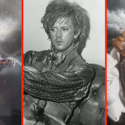

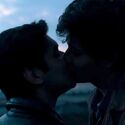
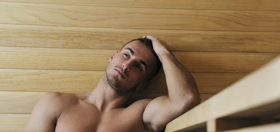

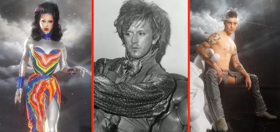
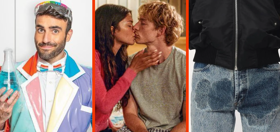
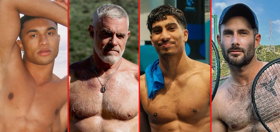
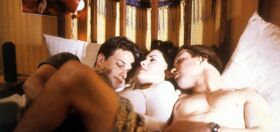
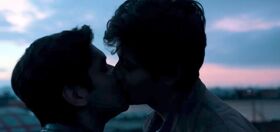
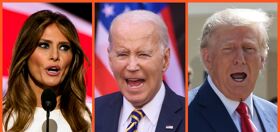
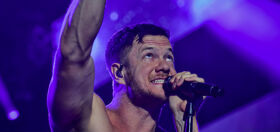



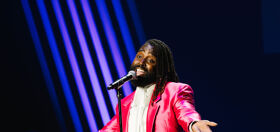
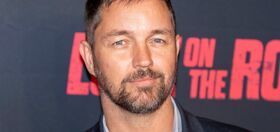
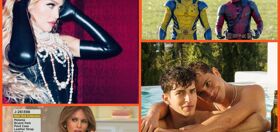
Robert
“Clive Jones” is Cleve Jones, friend of and intern for Harvey Milk and founder of The NAMES Project AIDS Memorial Quilt.
TylerOakley
Great interview. Very important thoughts: “I don’t think we’ll ever have someone like Harvey today, but he made it clear that we don’t need just one or two leaders– we need many leaders.”
Leland Frances
Agree with most of what she said, but, with all due respect, she’s irresponsibly perpetuating the Harvey hagiography by implying that no one was saying, “Come out!” before Milk. That’s not just nonsense but obscenely disrespectful nonsense to many who were working their asses off for the movement when he still thought “gay activism” only meant “fucking.”
She, and the movie, disgracefully fail to even reference in passing those upon whose shoulders she and Harvey stood. Some of them: Jose Sarria, SF drag diva who ran for supervisor long before he did. Jim Foster, who cofounded SF’s Society for Individual Rights and was the first out gay man to speak at the Democratic NATIONAL Convention….in 1972…five years before Harvey was elected LOCALLY in a gay-dominant district. And, yes, Rick Stokes, who was shamelessly defamed by the movie. And Frank Kameny, Barbara Gittings, Randy Wicker, Leonard Matlovich, Troy Perry, Dave Kopay, Bruce Voeller, Vito Russo, SF’s own Del Martin and Phyllis Lyon, the Stonewallers, and several others who were all saying “Come out!” BEFORE HARVEY CAME OUT publicly HIMSELF!
For other important corrections, we refer readers, and, if necessary, Ms. Kronenberg, to your post about those out gays who were elected BEFORE St. Harvey.
ChristopherM
@Leland Frances:
I don’t think she implied that at all, and furthermore, if you can figure out how to get all of that additional gay history into a screenplay that is compelling on top of the Milk story and do so in a 2 hour timeframe, then clearly you are in the wrong business. Milk the movie had a limited scope, and I really think people are expecting too much from it.
Jose totally deserves his own movie, though…and he’d be the first to tell you so! LOL!
Canada
@Leland Frances: WTF is your deal man. He did so much for the community, and for gay rights in general. What have you done other than crap all over the entire interview?
Leland Frances
1. “Agree with most of what she said.” – Leland Frances
2. “He really was a visionary in the way he encouraged people to come out and be visible. I think that’s his legacy.” – Kronenberg
visionary: “one having unusual foresight and imagination ” – Merriam-Webster
3. The argument that one couldn’t communicate anything else in the film that would have been more accurate and treated with more respect and justice the movement’s other, earlier heroes is shallow at best.
It would have taken nothing more than a few seconds of displayed screen text, e.g.,
“Though not the first themselves, beginning in the 1960s, several gay activists such as Barbara Gittings and Frank Kameny, whose papers and picket signs are now a part of the Library of Congress, widely encouraged gays to come out. The volume of that message was cranked up for the next generation by Harvey Milk.”
But nothing demonstrates that the REAL issue was not how to do such things but the mission, driven by the naive deepthroating of the hagiography of Milk Mythmaker In Chief Cleve Jones, of not doing them at all in order to paint Milk as much more than he was than the LIE, told TWICE in the film, that he was the “first openly gay man elected to a major office.”
SEE: http://www.queerty.com/think-harvey-milk-was-the-first-openly-gay-politician-think-again-20090121/
SMack
Beautiful interview. I hope we’ll make history again sometime soon.
Anne
I think that those who complain about whether or not Milk was the first openly gay person to have elected office are missing the point. What is important here is that the movie could be made at all. This isn’t just a documentary that gets buried somewhere in the ghetto of an arty film festival, it is a major production that puts gays and lesbians in front of the whole world. This was not only Milk’s film, it was the story of the gay and lesbian community that needed to be told across the world.
mara
I have no way of reaching Ann Kronenberg. I really want to because here’s the thing. I’m 17 and I live in California, just about an hour and a half away from San Francisco. I have known for a couple years that I want to be in politics and I want to help the world. My goal is to be the secretary of the Department of Health and Human Services and when I just watched Milk it completely re-enforced my love for politics and helping people and supporting causes i believe in. The most inspirational person in that film was Ann Kronenberg. I loved how she came in and then was able to show a soft/compassionate side when she warned Harvey of the bullet and the microphone. Please, if anyone knows of a way to get in contact with her, I’m a huge fan of you Ann Kronenberg. I think you’re an inspiration to people everywhere. Please PLEASE find a way to get in touch with me! Or SOMEONE give me a way to email her! PLEASE!
Stefan
@mara:
Mara – without even googling her I can tell you she’s a public servant – thus easy to find. You could mail her at SFDPH 101 Grove St. SF CA 94102 – call the main # at the Dept. of Public Health: (415) 554-2500? or try email – Dept. of Public Health employees usually have emails that are: [email protected]
good luck! And remember that being in politics and helping the world are separate creatures 😉
M Shane
She was definitely right in saying that they were “selective” about only showing one year of his life., and that there was disagreement, about this being realistic. They were selective about a whole lot-making it apply to a current sensability and issues as well as things that would be important to a lesbian feminist instead of the gay male populace then.
That it was made to be politically advatageous to issues now instead of the reality then is an overwhelming fact,.
The movie doesn’t feel or reflect the facts of the time, she is not dishonest about that. She does say that it says what audiences today would be receptive to.
Unfortunately that doesn’t feel a lot like the reality in context.
M Shane
People would be suprized and enlightened to realise that the actual situation was very different. It would give gay people a source of enlightenment to see reality. But history always becomes what the peoplre currently in power want it to look like for thier purposes, even if that proves to be destructive in the long run.
Jim
Anne and I grew up together and our families had many dinners at each others home. I have gone to church with her family
She looks so much like her mother now. I have talked about her with my sister and this is what I know about Anne.
She is a quiet decent person. She has integrity, love and honest.
I admire her very much as does my older sister. It has nothing to do with the events around Harvey Milk.
What I say about her is also true about her parents, sister and brother.
I never saw her with a particular ax to grind except what is true.
I think if anyone meets any of the Kronenbergs there life is richer for the experience.